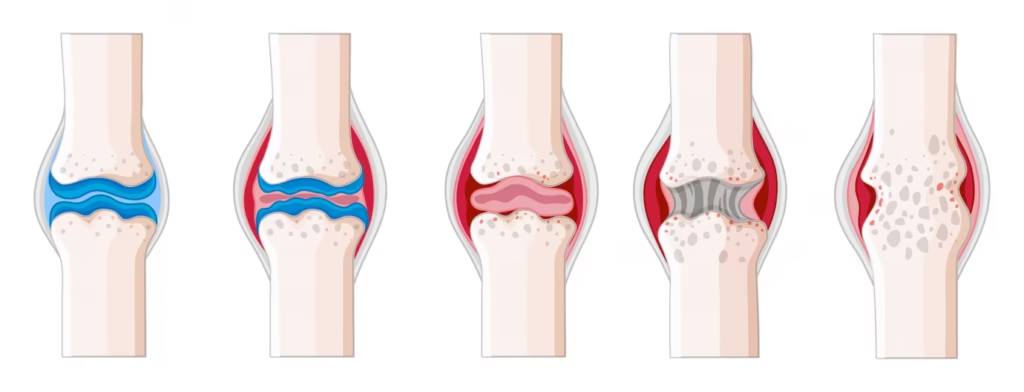Introduction
This article discusses the kidney disease symptoms in women. Kidney disease is a significant health concern that affects millions of individuals worldwide, with women facing unique risks and symptoms. Understanding these kidney disease symptoms in women is crucial for early detection and effective management. In this article, we will delve into the various kidney disease symptoms in women, providing insights and practical advice to empower readers in recognizing these indicators. By the end of our exploration, you will have a clearer understanding of how to identify potential kidney issues and the importance of seeking timely medical intervention.
Table of Contents

What Are the Kidneys, and Why Are They Important?
Before we dive into the symptoms, it’s essential to understand the role of the kidneys in our body. The kidneys are two bean-shaped organs located on either side of the spine, responsible for filtering waste products from the blood, balancing electrolytes, and regulating blood pressure. They also produce hormones that are vital for red blood cell production and bone health. When the kidneys are not functioning correctly, it can lead to a buildup of toxins in the body, resulting in various health complications.
Common Kidney Disease Symptoms in Women
1. Fatigue and Weakness
One of the most common kidney disease symptoms in women is persistent fatigue. This can often be attributed to the kidneys’ inability to filter waste effectively, leading to a buildup of toxins in the bloodstream. Women may feel unusually tired or weak, even after adequate rest. This fatigue can be likened to the feeling of running a marathon without training—exhausting and overwhelming.

2. Swelling (Edema)
Swelling, or edema, is another significant kidney disease symptoms in women. Women may notice puffiness in their ankles, feet, or around the eyes. This occurs when the kidneys cannot remove excess fluid from the body, leading to fluid retention. For instance, if you find that your rings fit more snugly than usual or your shoes feel tighter, it may be a sign of fluid retention related to kidney issues.

3. Changes in Urination
Changes in urination patterns can also indicate kidney problems. Women may experience increased frequency of urination, especially at night (nocturia), or may notice a decrease in urine output. Additionally, urine may appear foamy or bubbly, which can signify the presence of protein—a common marker of kidney damage. If you find yourself making frequent trips to the bathroom or noticing unusual changes in your urine, it’s essential to consult a healthcare professional.

4. Persistent Back Pain
While back pain can result from various causes, persistent pain in the lower back may signal kidney issues. Women may experience this discomfort due to kidney stones or infections. It is crucial to differentiate between regular muscle strain and pain that persists or worsens over time. If you experience such pain along with other kidney disease symptoms in women, seeking medical advice is advisable.

5. High Blood Pressure
kidney disease symptoms in women can lead to high blood pressure, which, in turn, can exacerbate kidney problems. Women may not realize that their high blood pressure is linked to kidney dysfunction. Regular monitoring of blood pressure is vital, especially for those with a family history of kidney disease. If your readings consistently exceed normal levels, it may be time to investigate further.
6. Nausea and Vomiting
As kidney function declines, toxins can accumulate in the body, leading to nausea and vomiting. Women may experience a loss of appetite or a general feeling of malaise. If you find that you are frequently feeling nauseated without an apparent cause, it could be related to kidney function and should be discussed with a healthcare provider.

7. Skin Rash or Itching
kidney disease symptoms in women can also manifest through skin changes. Women may develop rashes or experience persistent itching due to the buildup of waste products in the body. kidney disease symptoms in women can be particularly distressing, as it may not respond to typical treatments for skin conditions. If you notice unexplained skin issues, it is essential to consider kidney health as a potential underlying cause.
Risk Factors for Kidney Disease Symptoms in Women
Understanding the risk factors associated with kidney disease symptoms in women can help women take proactive measures to protect their kidney health. Some common risk factors include:
- Diabetes: Women who have diabetes face a significantly higher risk of developing kidney disease compared to those without the condition. This increased vulnerability underscores the importance of effectively managing blood sugar levels, as maintaining stable glucose levels is crucial for preventing potential complications related to kidney health. Regular monitoring and proactive measures can help mitigate this risk and promote overall well-being.
- Hypertension: The presence of high blood pressure, or hypertension, can have detrimental effects on the blood vessels within the kidneys. Over time, this damage can lead to impaired kidney function, which may result in serious health issues. It is essential for individuals with hypertension to monitor their blood pressure regularly and take appropriate steps to keep it within a healthy range, thereby protecting their kidney function.

- Family History: Having a family history of kidney disease can significantly increase an individual’s likelihood of experiencing similar health issues. Genetic predisposition plays a crucial role in this risk factor, making it vital for those with a family background of kidney problems to be vigilant about their kidney health. Regular screenings and consultations with healthcare professionals can help identify potential issues early on.
- Age: As individuals age, the risk of developing kidney disease tends to increase. This trend highlights the necessity for older women to prioritize regular check-ups and health assessments. By staying proactive about their health, older women can detect any early signs of kidney disease and take appropriate measures to address them, ensuring better management of their overall health.
- Obesity: Carrying excess weight is a significant contributing factor to both diabetes and hypertension, which in turn elevates the risk of developing kidney disease. The interplay between these conditions emphasizes the importance of maintaining a healthy weight through a balanced diet and regular physical activity. By addressing obesity, individuals can reduce their chances of encountering diabetes and hypertension, ultimately protecting their kidney health.
Preventive Measures and Lifestyle Changes
Taking proactive steps to maintain kidney health is vital for women, especially those with risk factors. Here are some actionable tips:
- Staying Hydrated: It is essential to drink adequate amounts of water throughout the day to help the kidneys efficiently flush out toxins and waste from the body. A general guideline is to aim for at least eight glasses of water daily, but it’s important to tailor this amount based on individual activity levels, climate conditions, and personal needs. For instance, if you are more physically active or live in a hotter environment, you may need to increase your water intake to stay properly hydrated and support your body’s functions.
- Eating a Balanced Diet: Maintaining a diet rich in a variety of fruits, vegetables, whole grains, and lean proteins plays a vital role in supporting overall kidney health. Incorporating these food groups provides essential nutrients that your body requires for optimal performance. Additionally, it is beneficial to limit the intake of salt and processed foods, as high sodium levels and artificial additives can adversely affect kidney function over time. Opting for fresh, wholesome ingredients can help in promoting better health and reducing the risk of kidney-related issues.

- Exercising Regularly: Engaging in physical activity on a consistent basis is important for achieving and maintaining a healthy weight, which in turn can aid in the management of blood pressure levels. Strive for at least 150 minutes of moderate exercise each week, which can include activities such as brisk walking, cycling, or swimming. Regular workouts not only contribute to overall fitness but also help improve blood circulation and enhance kidney functionality.
- Monitoring Blood Pressure and Blood Sugar: Keeping a close eye on your blood pressure and blood sugar levels through regular check-ups is crucial for early detection of potential health issues. By routinely monitoring these vital statistics, you can address any irregularities promptly and adopt necessary lifestyle modifications. Maintaining balanced blood pressure and blood sugar levels plays an integral part in protecting kidney health and preventing possible complications down the line.
- Avoiding Smoking and Limiting Alcohol: It is important to steer clear of smoking and to moderate alcohol consumption, as both can have detrimental effects on kidney function. Smoking introduces harmful substances into the body, while excessive alcohol can lead to dehydration and additional stress on the kidneys. Quitting smoking and being mindful of your alcohol intake can lead to significant improvements in overall health and well-being, allowing your kidneys to function more effectively and reducing the risk of related health concerns.
When to Seek Medical Attention
Recognizing the kidney disease symptoms in women is essential, but knowing when to seek medical attention is equally important. If you experience any combination of the kidney disease symptoms in women discussed, particularly persistent fatigue, swelling, changes in urination, or unexplained back pain, it is crucial to consult a healthcare professional. Early detection can lead to more effective management and potentially slow the progression of kidney disease.

Conclusion
kidney disease symptoms in women is a serious health concern that disproportionately affects, making awareness of vital kidney disease symptoms in women. By understanding the signs and risk factors associated with kidney disease, women can take proactive steps to protect their kidney health. Remember, early detection is key. If you notice any concerning symptoms, do not hesitate to seek medical advice. Your kidneys play a crucial role in your overall health, and taking care of them should be a priority.
Frequently Asked Questions (FAQs)
1. What are the early kidney disease symptoms in women?
Initial indications of kidney disease in women can manifest in several ways. Common symptoms may include a feeling of fatigue that seems more pronounced than usual, noticeable swelling in the legs and feet, alterations in urination patterns, and chronic back pain that does not go away easily. If you begin to observe any of these signs that may suggest kidney-related issues in women, it is essential to seek advice and have an evaluation conducted by a qualified healthcare professional. They can provide a thorough assessment of your symptoms and guide you on the appropriate next steps for your health.
2. How can I prevent kidney disease?
Preventing kidney disease requires a comprehensive approach that emphasizes the importance of maintaining a healthy lifestyle. This includes several key practices such as ensuring you stay properly hydrated throughout the day, which is essential for supporting kidney function. Additionally, consuming a well-balanced diet that includes a variety of fruits, vegetables, whole grains, and lean proteins is crucial for providing your body with the nutrients it needs. Engaging in regular physical activity is also necessary, as exercise helps to improve overall health and can significantly contribute to maintaining healthy blood pressure and blood sugar levels. Taking the time to manage these factors effectively can play a vital role in reducing the risk of kidney disease over the long term.
3. Is kidney disease hereditary?
Certainly, having a family history of kidney disease can indeed heighten the chances of an individual experiencing related health problems. This genetic predisposition underscores the importance of proactive care. Therefore, it is crucial for individuals with such a family background to engage in regular health check-ups and consistent monitoring of their kidney function. By doing so, they can better manage their health and potentially detect any issues at an early stage, leading to more effective interventions if necessary.
4. When should I see a doctor about my kidney health?
It is highly advisable that you seek medical attention from a qualified healthcare professional if you begin to experience any persistent kidney disease symptoms in women, which may include ongoing fatigue, noticeable swelling, alterations in your urination patterns, or discomfort in your back. Recognizing these signs early and consulting with a doctor is essential, as timely detection can significantly improve the effectiveness of management strategies and treatment options available to you. Taking these symptoms seriously is important for your overall health and well-being.
5. Can kidney disease be reversed?
Although certain types of kidney disease may be effectively managed or their progression slowed through a combination of lifestyle modifications and appropriate medical treatments, chronic kidney disease is frequently characterized by its progressive nature, which means that it cannot be reversed once it has advanced. Because of this, it is crucial to seek early intervention, as this can significantly enhance the likelihood of achieving the best possible health outcomes for those affected. Timely action is key in addressing the condition and improving overall kidney health.
By understanding kidney disease symptoms in women and taking proactive steps, you can significantly improve your kidney health and overall well-being.



